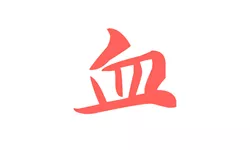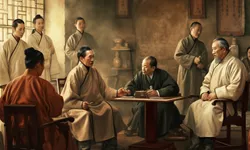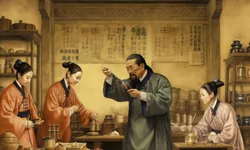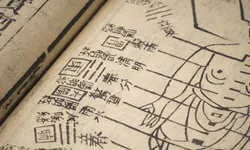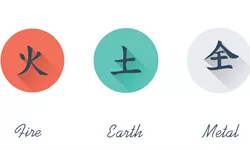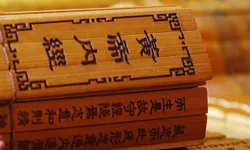Zang (脏) and Fu (腑) refer to all internal organs in the human body according to Chinese medicine. Zang-Fu organs is one of the basic concepts in Chinese medicine. Please note that, although they often share the same names as the organs we're used to in Western medicine, the Zang-Fu organs are quite different in their definitions. They refer to functional entities much more than anatomical features. To reflect this difference their names are often capitalized.
There are five Zang organs and six Fu organs. Each Zang organ is paired with a Fu (aside from the Heart that is paired with two Fu organs) and each pair is assigned a phase under the Five-Phases theory. Also, under the Yin-Yang theory, Zang organs are considered Yin in nature while Fu organs are Yang.
The Zang organs are thought to manufacture and store Qi, Blood and Essence. The Fu organs have a somewhat secondary role since their function is to transmit and digest substances like food or waste.
Here are the five Zang-Fu organ pairs with their respective phases:
- Spleen (Zang) and Stomach (Fu): Earth
- Lungs (Zang) and Large Intestine (Fu): Metal
- Kidneys (Zang) and Bladder (Fu): Water
- Liver (Zang) and Gall Bladder (Fu): Wood
- Heart (Zang) and Small Intestine (Fu) (and, secondarily, Triple Burner, an organ with no anatomical reality): Fire
Let's look at each Zang organ and their respective roles according to Chinese medicine.
The Heart
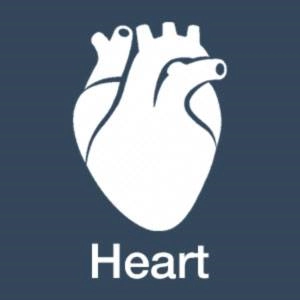
The Spleen
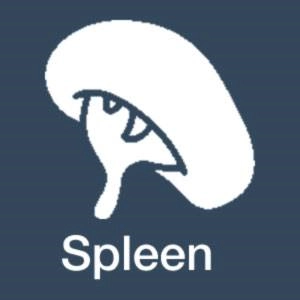
The Spleen has an arguably much bigger role in Chinese medicine than in Western medicine. Its role is seen as "transforming and absorbing" food and drinks, extracting "grain Qi" (the vital essence), blood and fluids out of them and distributing them to other Zang organs. Along with the Heart, the Spleen also has the function of containing blood inside blood vessels. As such if a patient has blood in their urine or their stools, this is seen as a Spleen deficiency. Lastly the Spleen also "governs" muscles and limbs. This is mainly due to its role of extracting nutrients out of what we eat or drink. If that role is not fulfilled properly, this will be readily apparent in one's muscles and limbs because they'll lose some of their strength.
The Spleen is said to "open" into the lips and mouth. Concretely this means that a spleen deficiency can be seen from the observation of a patient's appetite or from the color and shape of their lips. Someone who has a loss of appetite or who cannot taste food anymore will probably be diagnosed with a Spleen deficiency.
The Liver
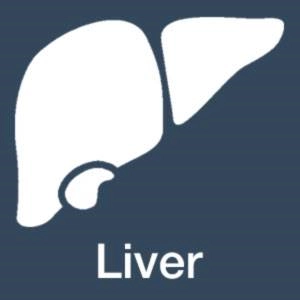
The Liver's main function in Chinese medicine is to ensure smooth flow of Qi throughout the body, to store blood when needed and to assist the digestive functions of the Spleen.
The Liver is often referred as the body's "general" in Chinese medicine because it is in charge of deciding on countermeasures if the external environment changes. For instance an organ might be "under attack" by an external pathogen and the Liver will decide to send more Qi their way. As such it has an important role in the Chinese Medicine version of the immune system.
Chinese medicine believes that sometimes (when a person lies down for instance) blood partially stops moving around the body and needs to be stored somewhere. The liver fulfills that storage role and releases the blood when it's needed again (when someone gets up, exercises, etc.).
The Liver "opens" into the eyes, "governs" the tendons and is "reflected" in the nails. This means that a Chinese doctor has many clues to understand if a patient has a Liver deficiency. Such patient may for instance have a jaundiced color in their eyes. Or they would have nails that are too thin and pale. Or, for the tendons part, they'd have difficulty bending or stretching.
The Lungs
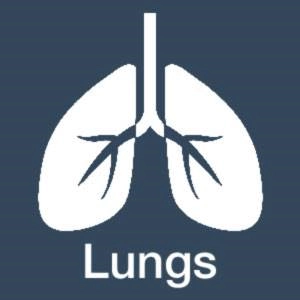
In Chinese medicine our body gets Qi from two sources: the food and drinks we ingest and the air we breath. The Spleen is in charge of transforming the former and the Lungs the latter. As such the main function of the Lungs is to extract Qi from the air we breath and to distribute this "air Qi" (as opposed to "grain Qi" from food and drink) to the body.
Another important function of the Lungs is to regulate some of the water flow in the body. They're notably responsible to expel some water by way of sweat (or via respiration) or send some water to the Kidneys that then transform it into urine.
Just like the Spleen "governs" muscles or the Liver "governs" tendons, the Lungs are said to "govern" the skin and the body hairs. The skin and body hair are seen as having a very important role against external pathogens in Chinese Medicine and the Lungs are in charge of regulating such function by equipping them with "defensive Qi". This means that skin conditions such as eczema or thin or brittle hairs are mainly seen as a sign of deficient lungs. This governing role on the skin and hair also goes along with the Lungs' role in regulating sweat. If one has excessive spontaneous sweat, it is a sign that the body's "defensive Qi" might be down and one will be more likely to catch illnesses such as influenza or colds.
Lastly the Lungs "open" into the nose and throat. This means that if a patient has a running nose, a strange or deficient sense of smell, a congested throat, a persistent cough or even a coarse voice a Chinese Medicine doctor will likely consider this an issue with their lungs.
The Kidneys
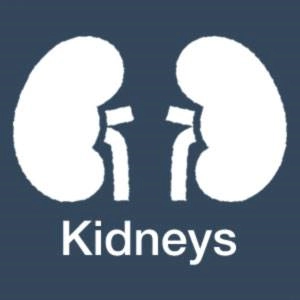
The Kidney's principal role from a Chinese Medicine standpoint is to store and release an essence called "Jing" (精). Jing is both inherited from one's parents (as such it can be compared with a Chinese Medicine version of DNA) and acquired via from food and various forms of stimulation (like exercise or study). The role of Jing is to govern one's growth and development as well as reproduction. As such someone with a strong Jing will for instance have an unimpeded development process during their childhood and teenage with good bone structure and good teeth. By the middle of one life, Jing will progressively decline. This is for instance the main Chinese Medicine explanation for menopause.
Another important role of the Kidneys is to control the metabolism of water and notably to separate it into "clear" and "impure" parts. The latter are expelled from the body as urine and the rest is distributed to other organs.
The Kidneys "open" into the ears and genital organs and is "reflected" in the hair. This means that someone with a hearing problem or a urinary tract disorder (like incontinence) might have deficient Kidneys. Similarly someone who loses their hair might also find the cause in their Kidneys.
Sources:
Ted J. Kaptchuk (1983). The Web That Has No Weaver: Understanding Chinese Medicine. Chicago, Il., U.S.A.: Congdon & Weed.
Ko, Robert. Health Concepts in Chinese Medicine [PDF documents and videos]. Retrieved from The Hong Kong University of Science and Technology on Coursera: https://www.coursera.org/learn/health-concepts-chinese-medicine
Zang-fu. (n.d.). In Wikipedia. Retrieved April 21, 2018, from https://en.wikipedia.org/wiki/Zang-fu
脏象. (n.d.). In A+医学百科. Retrieved April 21, 2018, from http://www.a-hospital.com/w/%E8%84%8F%E8%B1%A1
Article tags: Chinese Medicine theory

